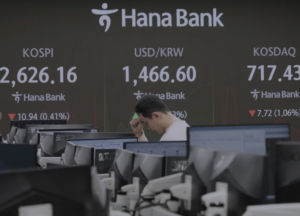China’s Commerce Ministry stated on Friday that Beijing is reviewing various proposals for trade talks with the Trump administration, but it emphasized that the steep tariffs imposed by Washington must be lifted. The ministry reaffirmed China’s openness to negotiations, but also made it clear that it would be prepared to fight if necessary. According to the ministry, the tariffs, which reach as high as 145%, remain a significant barrier and erode trust.
“The tariff and trade wars were unilaterally started by the U.S.,” the statement read. “If the U.S. wants to engage in talks, it must show sincerity and be willing to act on issues such as correcting its wrongful practices and canceling the unilateral tariffs.”
An anonymous ministry spokesperson mentioned that China had taken note of U.S. officials’ recent signals indicating a willingness to negotiate on tariffs. However, China warned that any overtures without a change in President Trump’s aggressive tariff policies would be seen as insincere. The ministry stated, “Saying one thing but doing another, or attempting coercion and blackmail under the guise of talks, will not work on China.”
Despite China being in the midst of a public holiday, Hong Kong’s stock market saw a 1.7% increase, and Taiwan’s benchmark index rose by 2.2%. U.S. futures also showed gains.
On Friday, the Trump administration ended an exemption on low-value imports from China, which will result in higher prices and delivery delays for shipments as tariffs are now applied to all imports. In response, China has raised its own tariffs on U.S. goods, some reaching as high as 125%, and has imposed tighter restrictions on certain U.S. exports, including critical minerals and agricultural products.
Meanwhile, China has been working to build international support against Trump’s trade actions, while also strengthening its own countermeasures. Trump’s tariffs, which include a 10% global import tax, are aimed at encouraging manufacturers to bring factories back to the U.S. He has also targeted foreign steel, aluminum, and automobile imports.
The most severe measures have been directed at China, the world’s largest exporter and second-largest economy. Trump’s frequent announcements about tariff increases, suspensions, and reinstatements have created confusion and uncertainty for businesses, investors, and consumers, leading to a decline in consumer confidence.
Treasury Secretary Scott Bessent, who is overseeing the administration’s China strategy, has said he expects Beijing to eventually call for talks, as the tariffs are not sustainable. In a recent interview, Bessent stressed that the primary issue with China was not high tariffs but other practices, including intellectual property theft and cyberattacks. He added, “Everything is on the table for the economic relationship,” and expressed confidence that China would eventually seek a deal.
However, Beijing has shown little willingness to back down, with its foreign ministry posting a strong video on social media this week that condemned the U.S. for “stirring up a global tariff storm.” The video concluded with a vow that China would not “kneel down” in the trade war, asserting, “Kneeling only invites more bullying.”














